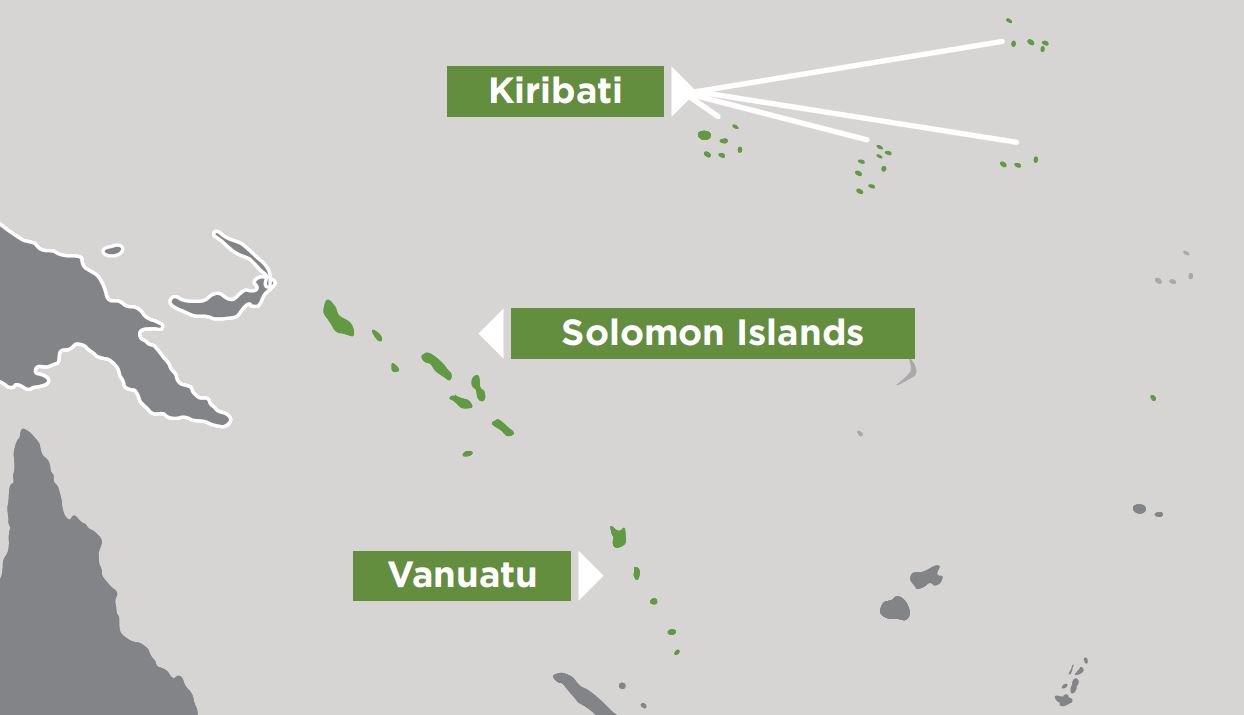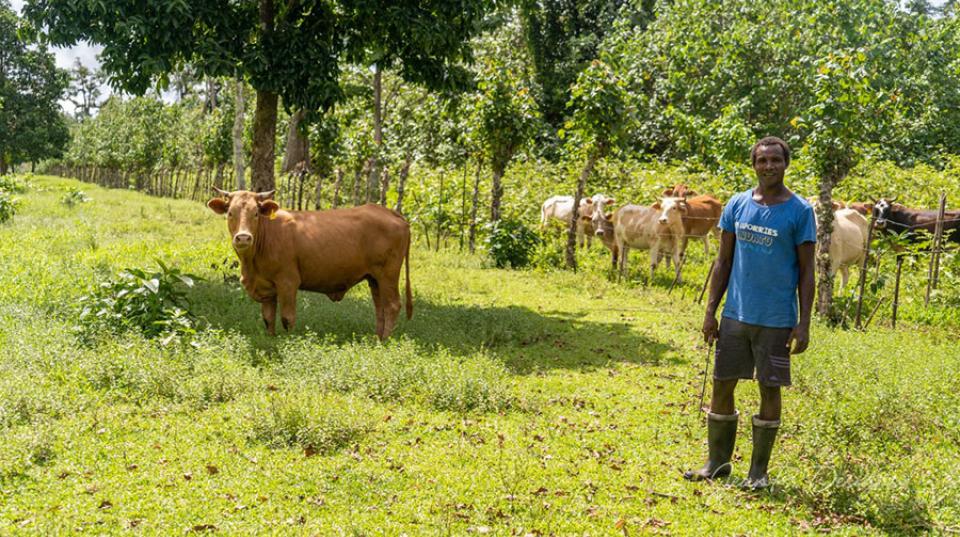Overview
This project aimed to conduct a detailed scoping study to develop a third-party verified voluntary sustainable certification program for key commodities in Vanuatu that recognises and compensates for the non-commodity outputs of sustainable farming systems and agritourism.
Voluntary certification offers a potential avenue to add value to the non-commodity outputs that traditional agricultural systems in Vanuatu provide by facilitating increased access to environmentally conscious consumers in high-value local and global markets.
Certification can also provide an effective tool to incentivise sustainable practices, equitable distribution patterns and produce for high-value niche markets through the branding of key commodities as ‘sustainable'. However, it is vital that standards for certification meet global requirements while also meeting the local context in Vanuatu.
This project sought to apply globally recognised standards for adding value to non-commodity outputs from sustainable agricultural systems and adapt them to a Vanuatu context to support smallholder farmers in Vanuatu to engage in multi-functionality and diversification of agriculture and agritourism. The activities sought to understand, and potentially commence the development of a third-party verified voluntary sustainable certification program for sustainable agricultural systems focusing on key commodities (beef, kava, cocoa, coffee, agritourism) and non-commodity outputs (such as ecosystem services climate change resilience and mitigation, traditional knowledge systems and biodiversity) in Vanuatu.
Project outcomes
- Clarified what types of non-commodity outputs are being produced from sustainable farming systems in Vanuatu through primary and secondary data and gained an understanding of what these sustainability outputs mean from the perspective of key smallholder commodities/industries in Vanuatu.
- Applied globally recognised standards for recognising non-commodity outputs from sustainable farming systems and agritourism and assess application in a Vanuatu context.
- Gained recognition of standards by both globally recognised accreditation bodies and the Vanuatu Bureau of Standards.
- Supported the potential design and governance structure of a third-party verified voluntary sustainable certification program for key commodities in Vanuatu (with the possible amalgamation with the Pacifica Organica).





